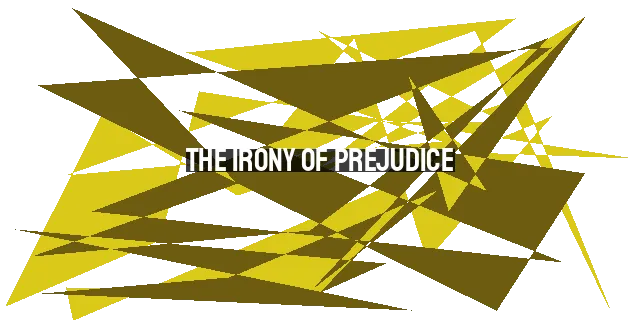Christian Hub
1 year ago
The Book of Life: Salvation, Deeds, and Our Union with Christ
The book of life is a significant concept in the Bible, particularly in the book of Revelation. It refers to a book in which the names of those who will be saved are written. In Revelation 13:8, it says, "All who dwell on earth will worship [the beast], everyone whose name has not been written before the foundation of the world in the book of life of the Lamb who was slain." This verse highlights the importance of being written in the book of life as it secures our salvation.
One of the key aspects to understand about the book of life is that salvation is not based on our own deeds or actions. Instead, it is secured through the sacrificial death of Jesus Christ, the Lamb who was slain. Our names are written in the book of life because of Christ's sacrifice, not because of anything we have done.
However, in Revelation 20:12, we read about another set of books that are opened during judgment. It says, "I saw the dead, great and small, standing before the throne, and books were opened. Then another book was opened, which is the book of life. And the dead were judged by what was written in the books, according to what they had done." This raises the question of how our deeds are involved in the judgment if salvation is based on Christ's sacrifice.
The answer lies in the fact that the books containing our deeds serve as a confirmation of our faith and our union with Christ. They provide evidence that we truly belong to Christ and have a genuine faith. Revelation 21:27 supports this idea by stating, "Nothing unclean will ever enter [the New Jerusalem], nor anyone who does what is detestable or false, but only those who are written in the Lamb's book of life." This verse suggests that being written in the book of life not only ensures our salvation but also affects our behavior, as those who are written in the book of life will not practice detestable or false behaviors.
To illustrate this further, let's consider the example of the thief on the cross. Jesus assured him that he would enter paradise (Luke 23:43), even though the majority of his life was marked by sin. While his salvation is secured through Christ's sacrifice, the books containing his deeds will be opened during judgment. The record of his sins will serve to magnify the supreme sacrifice of Christ, while the last page of the book, which chronicles the thief's transformation on the cross, will act as a public confirmation of his faith and union with Christ. Ultimately, it is Christ, not the thief's works, that serves as the basis of his salvation.
Therefore, when we talk about the books being a confirmation of our faith and union with Christ, we do not mean that the record will show more good works than bad works. Instead, it will demonstrate a life in Christ that reflects the reality of faith, regeneration, and union with Christ. This is how we approach each day as Christians, confident in the fact that our condemnation is past (Romans 8:1), our names are in the book of life, and the work that God has begun in us will be completed on the day of Christ.
The concept of the book of life is a powerful reminder of the amazing grace and salvation we have through Jesus Christ. It emphasizes that our salvation is not based on our own merits or works, but on the sacrificial death of Christ. However, it also highlights the importance of living a life that reflects our faith and union with Christ. Our deeds serve as a confirmation of our faith, and while they do not determine our salvation, they provide evidence of our genuine relationship with Christ.
In conclusion, the book of life is a central theme in the Bible, particularly in the book of Revelation. It signifies the names of those who will be saved and emphasizes that salvation is secured through the sacrifice of Jesus Christ. The books containing our deeds serve as a confirmation of our faith and union with Christ, providing evidence of our genuine relationship with Him. While our salvation is not determined by our works, they play a role in the judgment, showcasing the transformative power of Christ in our lives. As Christians, we can find assurance and confidence in the fact that our names are written in the book of life, and that God will bring His work in us to completion on the day of Christ.
One of the key aspects to understand about the book of life is that salvation is not based on our own deeds or actions. Instead, it is secured through the sacrificial death of Jesus Christ, the Lamb who was slain. Our names are written in the book of life because of Christ's sacrifice, not because of anything we have done.
However, in Revelation 20:12, we read about another set of books that are opened during judgment. It says, "I saw the dead, great and small, standing before the throne, and books were opened. Then another book was opened, which is the book of life. And the dead were judged by what was written in the books, according to what they had done." This raises the question of how our deeds are involved in the judgment if salvation is based on Christ's sacrifice.
The answer lies in the fact that the books containing our deeds serve as a confirmation of our faith and our union with Christ. They provide evidence that we truly belong to Christ and have a genuine faith. Revelation 21:27 supports this idea by stating, "Nothing unclean will ever enter [the New Jerusalem], nor anyone who does what is detestable or false, but only those who are written in the Lamb's book of life." This verse suggests that being written in the book of life not only ensures our salvation but also affects our behavior, as those who are written in the book of life will not practice detestable or false behaviors.
To illustrate this further, let's consider the example of the thief on the cross. Jesus assured him that he would enter paradise (Luke 23:43), even though the majority of his life was marked by sin. While his salvation is secured through Christ's sacrifice, the books containing his deeds will be opened during judgment. The record of his sins will serve to magnify the supreme sacrifice of Christ, while the last page of the book, which chronicles the thief's transformation on the cross, will act as a public confirmation of his faith and union with Christ. Ultimately, it is Christ, not the thief's works, that serves as the basis of his salvation.
Therefore, when we talk about the books being a confirmation of our faith and union with Christ, we do not mean that the record will show more good works than bad works. Instead, it will demonstrate a life in Christ that reflects the reality of faith, regeneration, and union with Christ. This is how we approach each day as Christians, confident in the fact that our condemnation is past (Romans 8:1), our names are in the book of life, and the work that God has begun in us will be completed on the day of Christ.
The concept of the book of life is a powerful reminder of the amazing grace and salvation we have through Jesus Christ. It emphasizes that our salvation is not based on our own merits or works, but on the sacrificial death of Christ. However, it also highlights the importance of living a life that reflects our faith and union with Christ. Our deeds serve as a confirmation of our faith, and while they do not determine our salvation, they provide evidence of our genuine relationship with Christ.
In conclusion, the book of life is a central theme in the Bible, particularly in the book of Revelation. It signifies the names of those who will be saved and emphasizes that salvation is secured through the sacrifice of Jesus Christ. The books containing our deeds serve as a confirmation of our faith and union with Christ, providing evidence of our genuine relationship with Him. While our salvation is not determined by our works, they play a role in the judgment, showcasing the transformative power of Christ in our lives. As Christians, we can find assurance and confidence in the fact that our names are written in the book of life, and that God will bring His work in us to completion on the day of Christ.



POST COMMENT
For post a new comment. You need to login first. Login
COMMENTS(0)
No Comment yet. Be the first :)